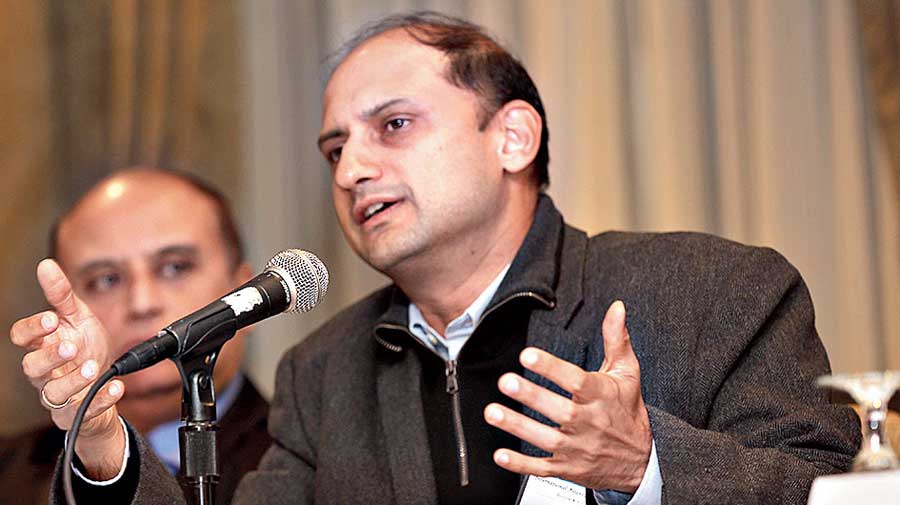Viral Acharya, the former deputy governor of the Reserve Bank of India (RBI), has warned against the central bank monetising the government’s budget deficit, citing risks to inflation and external sector stability.
“Adopting this approach is also deeply flawed,” according to excerpts from his book: Quest for Restoring Financial Stability in India.
“It would mean regressing to errors of the 1970s and 1980s,’’ he says.
Acharya, who resigned in June last year six months before his tenure ended, was known to hold strong views on the independence of the central bank.
He made headlines in October 2018 when he spoke out on the need to ensure the RBI’s independence and warned that any move to undermine its autonomy could be potentially catastrophic.
This came as the central government and the RBI were involved in a major rift on various issues, which included the Centre’s call for more share from the reserves of the RBI. It ultimately culminated in the resignation of the then governor Urjit Patel.
Incidentally, Acharya’s book comes after the recent release of Urjit Patel’s book — Overdraft: Saving the Indian Saver — where the ex-RBI governor indicated differences with the government over the Insolvency and Bankruptcy Code.
Patel said that “instead of buttressing and future-proofing the gains thus far, an atmosphere to go easy on the pedal ensued”.
Monetisation of deficit happens when the RBI directly buys government securities from the primary market and in turn prints more money thereby helping it to bridge the fiscal deficit.
Soon after the country was adversely hit by the pandemic (which hit the revenue collection) and the nationwide lockdown, various economists had suggested such a step as a necessary measure to deal with the crisis.
However, economic affairs secretary Tarun Bajaj recently said that monetisation of debt is not on the government’s agenda at the moment as there are some positive signs on the revenue collection front.
However, Acharya says that ‘monetisation of fiscal deficits by the central bank participating directly in the primary market for government debt or indirectly in the secondary market through its liquidity management operations would mean regressing to errors of the 1970s and the 1980s. Adopting this approach is also deply flawed as it risks run-away inflation and external sector stress,’’ he observed in the book.
Here he called for fiscal restraint by the government and resistance of fiscal dominance by the central bank. Fiscal dominance, he said, is traditionally defined as a state of the country in which large government debt and deficit prevent the monetary policy authority like a central bank from meeting its mandated economic targets like inflation, growth and employment and instead the central bank is focussed on ensuring that the government is successful in its borrowing programme.
The former RBI deputy governor pointed out that before 2000, the RBI used to participate in ‘automatic monetisation’ of the Indian government’s deficit as it purchased directly ad-hoc treasury bills.
This was institutionally ruled out by the FRBM Act of 2003 that prevented the central bank from participating in the primary market for government securities.
However, he went on to add that there has been a recent amendment of the RBI Act which allows it to re-enter the primary market for government debt under certain conditions, annulling the reform of 2003 and recreating expectations of deficit monetisation.










